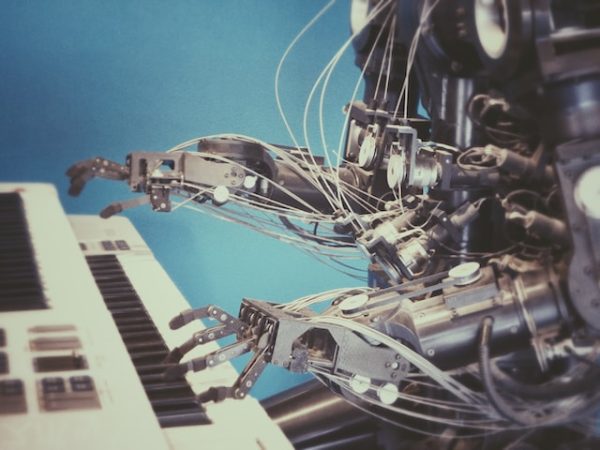
- Introduction to Artificial Intelligence
- Advantages and Benefits of Artificial Intelligence
- Drawbacks and Risks of Artificial Intelligence
- Ethical and Legal Considerations of Artificial Intelligence
- Impact of AI on Employment and Society
- Future of Artificial Intelligence
- Conclusion and Final Thoughts
- Frequently Asked Questions (FAQs)
The Pros and Cons of Artificial Intelligence. Artificial Intelligence, or AI, has become an increasingly prevalent topic in our society, with discussions about its potential benefits and drawbacks dominating headlines. AI is revolutionizing the way we live, work, and interact with the world around us, but it also comes with a set of challenges that we must address.
In this article, we will discuss the pros and cons of AI and its impact on society. We will explore its advantages and benefits, drawbacks and risks, ethical and legal considerations, impact on employment and society, the future of AI, and conclude with final thoughts on the topic.
Introduction to Artificial Intelligence
Artificial intelligence, or AI, is a rapidly growing field that involves teaching machines to learn from experience like humans do. With advances in machine learning and computer processing power, AI has become increasingly prevalent in our daily lives, from personal assistants like Siri and Alexa to self-driving cars and medical diagnosis software.
Definition of Artificial Intelligence
Artificial intelligence refers to the development of computer systems that are capable of performing tasks that would normally require human intelligence, such as learning, problem-solving, and decision-making. This can be achieved through a variety of methods, such as machine learning, natural language processing, and robotics.
A Brief History of Artificial Intelligence
The concept of artificial intelligence has been around for centuries, but it wasn’t until the mid-20th century that it began to emerge as a serious field of study. The development of the first electronic computers in the 1940s and 1950s laid the foundation for modern AI, and the field experienced a boom in the 1960s and 1970s with the development of expert systems and early forms of machine learning. In recent years, the increasing availability of large data sets and advanced computing power has led to significant advancements in AI technology.
Advantages and Benefits of Artificial Intelligence
AI technology offers a range of benefits and advantages, including:
Efficiency and Accuracy
One of the primary benefits of AI is its ability to perform tasks quickly and accurately. By automating routine tasks and eliminating the risk of human error, AI can improve productivity and efficiency in a wide range of industries.
24/7 Availability
AI systems can work around the clock without the need for breaks or rest. This allows businesses to operate more efficiently and provide better service to customers.
Innovative and New Opportunities
AI technology is creating new opportunities for businesses and individuals alike, from personalized marketing and healthcare to self-driving cars and space exploration.
Drawbacks and Risks of Artificial Intelligence
While AI technology offers significant benefits, there are also a number of risks and drawbacks to consider:
Lack of Empathy and Emotional Intelligence
AI lacks the human capacity for empathy and emotional intelligence. This can make it difficult for machines to understand and respond to complex human emotions, leading to potential misunderstandings or even harm.
Data Privacy and Security Concerns
AI relies on vast amounts of data to learn and operate effectively. This creates potential privacy and security risks, particularly as AI systems become more complex and interconnected.
Dependency on AI
As AI becomes more prevalent, there is a risk that humans may become overly reliant on these systems. This could lead to a loss of critical thinking skills and a reduction in overall human intelligence.
Ethical and Legal Considerations of Artificial Intelligence
As AI technology becomes more advanced, there are a number of ethical and legal considerations that must be taken into account:
Bias and Discrimination
AI systems are only as unbiased as the data they are trained on. This means that there is a risk of bias and discrimination in the algorithms used to make decisions, particularly in areas like hiring, lending, and criminal justice.
Transparency and Accountability
AI systems can be opaque and difficult to understand, particularly as they become more complex. This makes it difficult to hold these systems accountable for their decisions, particularly when they have far-reaching consequences.
Legal Responsibility and Liability
As AI technology becomes more widespread, there is a need to clarify legal responsibility and liability in cases where AI systems cause harm or make flawed decisions. This requires a careful balancing of the benefits and risks of AI, as well as an understanding of how these systems work and what they are capable of.
Impact of AI on Employment and Society
Artificial intelligence (AI) is rapidly transforming the world, affecting nearly every industry and sector. While AI has incredible potential to solve problems and improve our lives, it also brings about new challenges and concerns. One of the most prominent issues is the impact of AI on employment and society.
Job Displacement and Upskilling
One of the primary concerns of AI is its potential to replace human jobs. As machines become more intelligent and capable of performing human tasks, some jobs may become obsolete, causing a shift in the job market. However, AI also has the potential to create new jobs and industries, requiring new skills and knowledge.
To mitigate the potential impact of job displacement, organizations must invest in upskilling and reskilling initiatives to ensure that employees have the skills necessary to work alongside AI systems. This means that individuals must also take proactive measures to learn new skills and adapt to changing job requirements.
Income Inequality and Social Divide
Another concern is that AI may exacerbate income inequality and create a social divide. AI has the potential to automate many low-skill, low-wage jobs, leaving behind those who lack the education and skills to transition to new positions. This can further widen the gap between the rich and poor, as those with the necessary skills and knowledge can leverage the benefits of AI.
To address this issue, governments and organizations must prioritize education and training to ensure that everyone has access to the skills and knowledge needed to work with AI systems. Additionally, they must consider policies and programs that support those who may be displaced by AI.
AI and Healthcare
AI is already making significant strides in healthcare, from personalized medicine to disease diagnosis and prevention. AI can analyze large amounts of patient data, identify patterns, and make predictions about potential health risks. This can lead to earlier detection and treatment of diseases, improving health outcomes.
However, the use of AI in healthcare also raises concerns about data privacy and security, as well as the potential for AI to perpetuate biases in the healthcare system. As AI becomes more prevalent in healthcare, it is important to ensure that appropriate safeguards are in place to protect patient privacy and prevent bias.
Future of Artificial Intelligence
As AI continues to advance, there are new possibilities and challenges on the horizon. Here are some of the key considerations for the future of AI:
AI and Singularity
The concept of singularity refers to the hypothetical point in time when AI surpasses human intelligence, leading to a rapid and exponential increase in technological progress. While singularity remains a topic of debate among experts, it is important to consider the ethical and societal implications of creating machines that surpass human intelligence.
AI and Sustainability
AI can contribute to sustainable development by improving resource management, reducing waste, and minimizing harmful environmental impacts. However, AI can also contribute to unsustainable practices, such as increased energy consumption and electronic waste. It is important to consider the long-term environmental impacts of AI and take steps to mitigate negative consequences.
AI and Human Augmentation
AI has the potential to enhance human capabilities, from improving memory to enhancing physical abilities. While this may offer significant benefits, it is important to consider the ethical implications of augmenting human capabilities with AI. It is crucial to ensure that individuals are not unfairly advantaged or disadvantaged by AI-augmented capabilities.
Conclusion and Final Thoughts
AI is a rapidly evolving technology with enormous potential to transform nearly every aspect of our lives. However, as with any technology, there are both benefits and risks to consider. It is important to approach the development and deployment of AI with caution and consideration for its impact on employment, society, and the environment. By taking a thoughtful and proactive approach, we can harness the power of AI to create a better future for all.In conclusion, Artificial Intelligence is a powerful tool that has the potential to transform the world in which we live. While it offers numerous benefits and opportunities, it also poses significant risks and challenges that we must address. As we continue to develop and implement AI, it is essential to consider its ethical, legal, and societal impacts carefully. Only with careful consideration, planning, and collaboration can we ensure that AI is used to its fullest potential while minimizing the risks and maximizing the benefits for all.
Frequently Asked Questions (FAQs)
What is Artificial Intelligence, and how does it work?
Artificial Intelligence (AI) refers to machines’ ability to perform tasks that would typically require human intelligence, such as learning, reasoning, and problem-solving. AI systems use algorithms and data to analyze and make decisions, improving their performance over time.
What are some of the benefits of Artificial Intelligence?
AI offers numerous benefits, including improved efficiency and accuracy, 24/7 availability, and innovative opportunities for solving complex problems. AI can also automate tedious tasks, freeing up time for people to focus on more creative and higher-level activities.
What are some of the risks and challenges associated with Artificial Intelligence?
AI poses several risks and challenges, such as data privacy and security concerns, lack of empathy and emotional intelligence, and increased dependency on technology. There are also ethical considerations such as bias and discrimination, transparency, and accountability.
What does the future hold for Artificial Intelligence?
The future of AI is exciting and holds significant potential for innovation and progress in various fields such as healthcare, education, and sustainability. However, there are also concerns about the impact of AI on employment, social inequality, and the potential for AI to surpass human intelligence. As AI continues to evolve, it is essential to consider its potential impacts and work collaboratively to ensure that it is used for good.
Read More :





